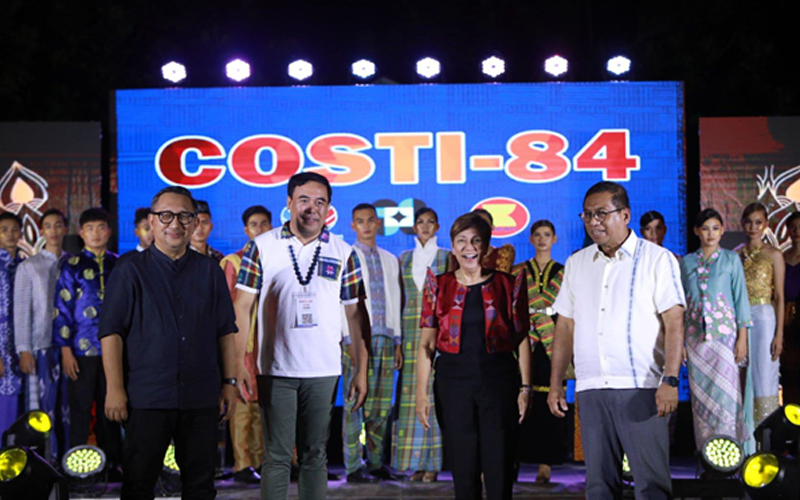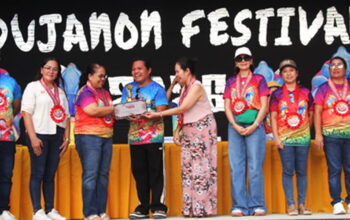
CORTES, Bohol (PIA) –Philippine fibers with a twist: and who would have thought bringing science and technological innovation to textiles could bring the piña, abaca, banana, silk and bamboo could become eco-friendly solutions to sustainable textile industry worth the fashion spotlight?
That became the side event focus when the Department of Science and Technology (DOST), through the DOST Philippine Textile Research Institute (DOST-PTRI) hosted the ASEAN Techno-Fashion Exposition on 19 October 2023 in Bohol, Philippines.
There, innovation, Arts, and the rich indigenous fiber culture and design intertwine into a single spool as the Philippines through DOST welcomed and hosted the 84th ASEAN Committee on Science, Technology, and Innovation (COSTI).
DOST showcased various research and development output collections of textile materials, weaves, traditional wears, and innovative textiles from the ASEAN delegation.
No less than DOST Secretary Renato U. Solidum Jr., DOST Undersecretary Leah J. Buendia, ASEAN COSTI Chair Mohammad Nazri Mohammad Yusof of Brunei, National COSTI Chairs of other ASEAN Member States, Ambassador and Permanent Representative of the Republic of the Philippines to ASEAN, Ambassador Hjayceelyn M. Quintana, and UK Ambassador to ASEAN, Ambassador Sarah Tiffin, graced the international event held in Panglao, October 16-20.
Also featured were textiles from ASEAN countries including Brunei Darussalam, Indonesia, Malaysia, Myanmar and Thailand, according to the DOST Bohol Provincial Science and Technology Center.
The techno-fashion endeavour brought together designers, scientists, and tech innovators to create a harmonious fusion of aesthetics and cutting-edge technology in textile and fashion, according to DOST Bohol PSTC Director Vina Antopina.
For the Philippines, the techno fashion show highlighted DOST’s commitment to promoting innovation in the Philippines and fostering creative collaborations with the textile industry, designers and market leaders to create new innovative products from indigenous fibers.
Philippine textiles featured eco-friendly fashion solutions that use sustainable materials and production methods such as fibers from pineapple, banana, abaca, silk, and bamboo that align the country with global sustainability goals and promote responsible fashion practices.
Featured Philippine local brands that adopted DOST-PTRI technologies were BAYO Dyes: a homegrown brand which adopted DOST PTRI’s natural dyes technology; AIRE a brand that adopted technologies that convert the natural fibers into wearable yarns and is now available in online retail market; BAYO x SEDA Pilipinas collection of wearable pieces made of Philippine Silk; and the KatHABI Haute Culture Collection f handlooms woven textile products made by Philippine indigenous communities.
Other ASEAN member states which also showcased their traditional clothes were Brunei Darussalam with Baju Melayu bergulambir, Indonesia for its batik and sarung, Malaysian Indian men’s Kurta, Malaysian Chinese men’s Samfoo, Thailand men’s Chong Kraben and Myanmar’s Longyi which can be worn by both men and women.
For female traditional clothes, Brunei, Indonesia, and Malaysia, featured Kebaya while Thailand featured Chut Thai.
Secretary Solidum expressed his great enthusiasm for this groundbreaking event, stating, “The ASEAN Techno-Fashion Expo is a testament to the boundless creativity and potential that emerges when science, technology, innovation and the arts converge.
It is a celebration of innovation, sustainability, and the limitless possibilities that exist in the intersection of these industries,” he added.
The ASEAN Techno-Fashion event not only promotes cross-border collaborations, but also serves as a catalyst for exploring the potential of textiles in shaping the future of fashion and history, Antopina said. (PIAbohol with DOST)


